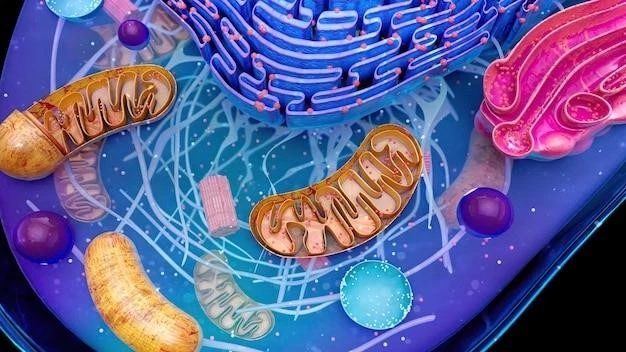Overview of Mitochondrial Trifunctional Protein Deficiency
Disease⁚ Mitochondrial Trifunctional Protein Deficiency
Mitochondrial trifunctional protein deficiency affects fat conversion to energy, leading to various symptoms.
Mitochondrial trifunctional protein deficiency is an inherited condition that affects the body’s ability to convert certain fats into energy. This deficiency is caused by mutations in the HADHA or HADHB genes, which are involved in the enzymatic activities of the mitochondrial trifunctional protein complex.
Clinical Presentation of Mitochondrial Trifunctional Protein Deficiency
Presentation may vary from infancy with feeding difficulties to later onset with muscle weakness and metabolic symptoms.
Definition and Causes
Mitochondrial trifunctional protein deficiency is an inherited condition affecting the body’s fat energy conversion process, caused by mutations in the HADHA or HADHB genes.
Intermediate and Late-Onset Phenotypes
Intermediate and late-onset phenotypes of mitochondrial trifunctional protein deficiency can present with muscle weakness, metabolic symptoms, and neurologic manifestations, differing from the infancy onset symptoms.
Mitochondrial trifunctional protein deficiency results from impairment of the enzymatic activities of the mitochondrial trifunctional protein complex, affecting fat metabolism and energy production.
Impairment of Mitochondrial Trifunctional Protein
Mitochondrial trifunctional protein deficiency stems from a malfunction in the enzymatic activities of the mitochondrial trifunctional protein complex, affecting crucial fat metabolism and energy production processes.
HADHA and HADHB Genes Mutations
Mutations in the HADHA or HADHB genes are responsible for mitochondrial trifunctional protein deficiency. These mutations lead to enzymatic impairments within the mitochondrial trifunctional protein complex, impacting fat metabolism processes.

Diagnosis and Testing
Diagnosis of mitochondrial trifunctional protein deficiency involves evaluating newborns to assess clinical status, performing genetic testing for HADHA and HADHB genes mutations, and conducting specific metabolic tests to confirm the condition.
Evaluation of Newborns
Assessment of newborns includes clinical status examination, genetic testing for mutations in HADHA and HADHB genes, detailed metabolic tests assessing fatty acid oxidation, and monitoring symptoms like hypoketotic hypoglycemia, hepatomegaly, and muscle weakness.
Genetic Testing Approaches
Genetic testing for mitochondrial trifunctional protein deficiency typically involves sequencing analysis of the HADHA and HADHB genes. This testing can identify pathogenic variants responsible for impairments in the mitochondrial trifunctional protein complex, aiding in the diagnosis of the condition.
Manifestations and Complications
Mitochondrial trifunctional protein deficiency can lead to metabolic decompensation, neurological manifestations, cardiac issues, and other complications.
Metabolic Decompensation
Metabolic decompensation in mitochondrial trifunctional protein deficiency can present with symptoms like encephalopathy, hypoketotic hypoglycemia, hepatomegaly, elevated transaminases, and lactic acidosis. Immediate intervention is crucial to manage the rapidly progressive liver dysfunction and prevent further complications.
Neurological and Cardiac Manifestations
Individuals with mitochondrial trifunctional protein deficiency may exhibit neurological symptoms such as encephalopathy, seizures, and coma, as well as cardiac issues like dilated cardiomyopathy, cardiac arrhythmias, and heart failure. The severe form of the condition can have a high mortality rate associated with progressive heart complications.

Treatment and Management
Individuals with mitochondrial trifunctional protein deficiency require prompt diagnosis and therapeutic interventions to manage symptoms effectively.
Importance of Prompt Diagnosis
A prompt diagnosis of mitochondrial trifunctional protein deficiency is essential for timely intervention to manage symptoms effectively and prevent complications. The diagnosis involves evaluating newborns, conducting genetic testing for HADHA and HADHB gene mutations, and specific metabolic tests to confirm the condition.
Therapeutic Interventions
Therapeutic interventions for mitochondrial trifunctional protein deficiency focus on managing metabolic decompensation, neurological symptoms, and cardiac manifestations. Prompt treatment, dietary adjustments, and specialized medical care are essential to address the diverse complications associated with this condition.
Studies on mitochondrial trifunctional protein deficiency continue to advance the understanding of this rare condition and therapeutic strategies, aiming to improve patient outcomes and quality of life.
Studies on Mitochondrial Trifunctional Protein Deficiency
Research on mitochondrial trifunctional protein deficiency focuses on understanding the genetic basis, enzymatic impairments, metabolic manifestations, and potential therapeutic strategies to improve patient outcomes. Studies aim to advance knowledge of this rare condition and develop effective treatment approaches.
Research and Current Understanding
Advancements in research on mitochondrial trifunctional protein deficiency have led to a better understanding of the genetic basis, enzymatic impairments, and diverse manifestations of the condition. These studies focus on enhancing diagnostic approaches, exploring novel therapeutic strategies, and improving overall management to enhance patient outcomes.
Impact on Quality of Life
Patients and families affected by mitochondrial trifunctional protein deficiency face significant challenges related to managing symptoms, treatment interventions, and potential complications, impacting their overall quality of life. Coping mechanisms and support systems play a crucial role in navigating the complexities of this rare genetic condition.
Challenges Faced by Patients and Families
Patients and families dealing with mitochondrial trifunctional protein deficiency encounter various challenges related to managing complex symptoms, treatment requirements, and potential liver and cardiac complications. The impact on daily life and long-term care necessitates strong support systems and coping strategies.
Coping Mechanisms and Support Systems
Patients and families affected by mitochondrial trifunctional protein deficiency rely on coping mechanisms and support systems to navigate the challenges associated with the condition. Utilizing psychological support, patient advocacy groups, and specialized medical care can help enhance the quality of life for individuals facing this rare genetic disorder.
Prevention and Future Directions
Potential for early detection and intervention in mitochondrial trifunctional protein deficiency offers opportunities to implement preventive measures, optimize therapeutic interventions, and explore innovative research directions to enhance patient care and outcomes.
Potential for Early Detection and Intervention
Early detection and intervention for mitochondrial trifunctional protein deficiency offer opportunities to implement preventive measures and optimize therapeutic interventions. By identifying genetic mutations early and understanding the enzymatic impairments associated with the condition, healthcare providers can potentially improve patient outcomes and quality of life through proactive management strategies.
Emerging Research Avenues
Emerging research in mitochondrial trifunctional protein deficiency focuses on exploring new therapeutic avenues, investigating potential treatments that target the enzymatic impairments, and evaluating innovative genetic strategies for managing this complex metabolic disorder. Advances in understanding the pathophysiology and genetic basis of the condition pave the way for future research directions aiming to enhance diagnostic methods and optimize treatment approaches.
Conclusion
Enhanced understanding of mitochondrial trifunctional protein deficiency enables early detection, interventions to manage complications effectively, and fosters ongoing research initiatives to improve patient care and outcomes.
Summary of Mitochondrial Trifunctional Protein Deficiency
Mitochondrial trifunctional protein deficiency, a rare genetic disorder, hampers the body’s ability to convert specific fats into energy, leading to various symptoms ranging from infancy onset with feeding difficulties to potential neurological and cardiac manifestations. The condition involves impairments in the fatty acid oxidation process, calling for specialized diagnostic testing, early interventions, and ongoing research efforts to advance treatment approaches and improve patient outcomes.
